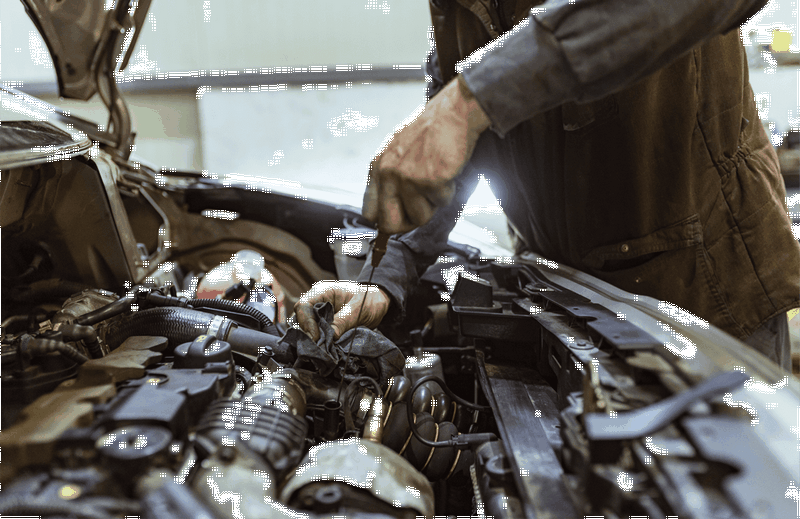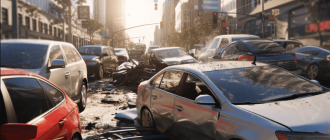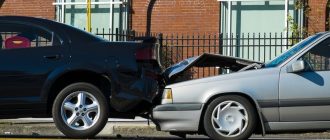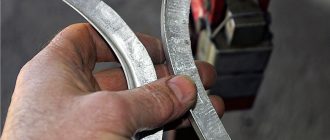
The Dangers of Unrepaired Collision Damage
Collisions can result in serious damage to your vehicle, and if left unrepaired, can pose significant dangers. Whether it’s a minor fender bender or a major crash, the damage caused by a collision can affect the structural integrity of your vehicle, compromising your safety on the road.
The dangers of unrepaired collision damage go beyond cosmetic issues. Structural damage can weaken the frame of your vehicle, making it more susceptible to further damage in future accidents. The compromised structural integrity can also impact the effectiveness of important safety features, such as airbags and seat belts. This puts you at a higher risk of severe injury or even death in the event of another collision.
Additionally, unrepaired collision damage can affect the performance and handling of your vehicle. Misaligned wheels, bent suspension components, and damaged steering systems can result in poor control and stability, increasing the likelihood of accidents. Furthermore, damage to the electrical systems and sensors can cause malfunctions and failures, leading to unpredictable behavior and potential accidents on the road.
It is imperative to address collision damage promptly and thoroughly. Seeking professional repairs not only ensures your safety but also helps preserve the value of your vehicle. Timely repairs minimize the risk of further damage and can prevent costly repairs down the line. Don’t underestimate the dangers of unrepaired collision damage – prioritize your safety and get your vehicle repaired by trusted experts.
The Importance of Car Repair After a Collision
When it comes to the dangers of unrepaired collision damage, it is important to understand the significance of getting your car repaired after a collision. Collision damage can have serious consequences if left unaddressed.
First and foremost, driving a car with unrepaired collision damage is a safety hazard. Even minor damage can weaken the structural integrity of your vehicle and compromise its ability to protect you in the event of another collision. What may seem like a small dent or scratch could be hiding more serious damage underneath. It is essential to have a professional inspect your vehicle after a collision to ensure that all damage is identified and repaired.
In addition to safety concerns, failing to repair collision damage can also have financial repercussions. Unrepaired damage can lead to more extensive and costly repairs down the line. For example, a damaged bumper that is not repaired could lead to further damage to the underlying components or the paintwork. It is always best to address collision damage promptly to avoid more extensive and costly repairs in the future.
Furthermore, having your car repaired after a collision can also help maintain its resale value. Potential buyers are likely to be wary of a vehicle that has been in a collision and has not been repaired. By ensuring that all damage is properly repaired, you can increase the chances of getting a fair price when it comes time to sell or trade in your car.
In conclusion, the dangers of unrepaired collision damage should not be underestimated. Getting your car repaired after a collision is essential for your safety, financial well-being, and the resale value of your vehicle. Don’t take any chances – make sure to address any collision damage as soon as possible.
Structural Damage and Its Consequences
Unrepaired damage to the structure of a vehicle can have serious consequences. The structural integrity of a car is crucial for the overall safety of its occupants. When a vehicle is involved in a collision, it may sustain structural damage that can compromise its ability to protect passengers in future accidents.
Structural damage refers to the deformation or weakening of a vehicle’s frame or body structure. This can include bent or twisted panels, misaligned components, or even cracks in the frame. Even if the damage seems minor on the surface, it can have far-reaching effects on the overall safety of the vehicle.
One of the dangers of unrepaired structural damage is the increased risk of collapse or failure during subsequent accidents. The damaged structure may not be able to withstand the impact forces, putting the occupants at a greater risk of injury or even death. Additionally, structural damage can affect the vehicle’s handling and stability, making it more prone to accidents in general.
Another consequence of unrepaired structural damage is the potential for hidden safety issues. Structural damage can compromise the proper functioning of safety systems such as airbags and seat belts. In the event of another collision, these systems may not function correctly, further increasing the risk of injury.
Moreover, unrepaired structural damage can also result in decreased resale value and higher insurance premiums. When a prospective buyer or insurance company discovers that a vehicle has unresolved structural damage, they may consider it a high-risk investment, leading to lower offers or higher insurance costs.
In conclusion, the dangers of unrepaired structural damage should not be underestimated. Addressing any damage promptly and thoroughly is essential for maintaining the safety and value of a vehicle. If you suspect that your vehicle has suffered structural damage, it is crucial to have it inspected by a qualified professional and make any necessary repairs as soon as possible.
Hidden Damage: Why It Must Be Addressed
The dangers of unrepaired collision damage go beyond what you can see on the surface. While the visible damage might be obvious, there is often hidden damage lurking beneath, waiting to cause more trouble if left unaddressed.
Collision damage can affect various parts of your vehicle, such as the frame, suspension, or even the engine. Even if the initial impact seems minor, there could be underlying issues that can compromise your car’s safety and performance.
Ignoring or neglecting hidden damage can lead to a number of problems. First and foremost, it puts your safety at risk. Structural damage can weaken the integrity of your vehicle, making it less able to withstand another collision. It can also affect the functioning of safety features like airbags or seat belts, increasing the chances of serious injury in an accident.
Hidden damage can also affect the overall performance of your car. Misalignment of the frame or suspension can lead to uneven tire wear, reduced fuel efficiency, and poor handling. Engine damage can result in decreased power or even complete breakdown if left unattended.
Additionally, ignoring hidden damage can negatively impact the value of your vehicle. If you ever decide to sell or trade-in your car, the unrepaired damage can significantly reduce its resale value. Potential buyers or dealerships may be wary of investing in a vehicle with unknown issues, leading to lower offers or difficulty in finding a buyer.
It’s essential to address hidden collision damage as soon as possible to mitigate these risks and ensure the long-term safety and performance of your vehicle. Even if the initial repair costs may seem daunting, it’s crucial to remember that investing in repairs now can save you from potential accidents, breakdowns, and costly repairs down the line.
If you’ve recently been in a collision, don’t just focus on the visible damage. Have your vehicle thoroughly inspected by a trusted mechanic or collision repair specialist to uncover and address any hidden damage. It’s better to be safe than sorry.
Remember, the dangers of unrepaired collision damage extend beyond what meets the eye. Take proactive steps to address and repair hidden damage to keep yourself and others safe on the road.
The Risk of Malfunctioning Safety Features
The dangers of unrepaired collision damage go beyond just the aesthetic appearance of your vehicle. One significant risk of not repairing collision damage is the potential for malfunctioning safety features.
When your vehicle is involved in a collision, its safety features, such as airbags and seat belts, are designed to protect you and your passengers. However, if these features are damaged and not properly repaired, they may not function as intended during future accidents.
This can have serious consequences. If your airbags don’t deploy or your seat belts fail to lock properly, you and your passengers could be at a higher risk of injury or even death in the event of another collision. Malfunctioning safety features can also increase the severity of injuries sustained in an accident.
It’s important to have your vehicle thoroughly inspected and repaired by a trusted auto body shop after a collision. This includes ensuring that all safety features are functioning correctly and have been properly repaired or replaced. Don’t compromise on safety – the consequences of driving a vehicle with malfunctioning safety features can be deadly.
The Negative Impact on Vehicle Performance
Unrepaired collision damage can have a significant impact on the performance of a vehicle. When damage from a collision is left unaddressed, it can lead to a variety of issues that can affect the overall functionality and safety of the vehicle.
One of the main consequences of unrepaired collision damage is a decrease in the vehicle’s structural integrity. Structural components like the frame and chassis may be weakened or compromised, which can result in reduced stability and handling. This can make the vehicle more prone to accidents and make it more difficult to control on the road.
Another potential issue that arises from unrepaired collision damage is damage to the suspension system. The impact from a collision can cause misalignment or damage to components such as the struts, shocks, or control arms. This can lead to uneven tire wear, poor handling, and a bumpy or uncomfortable ride.
Furthermore, the damage to the vehicle’s body panels can also impact its performance. Damaged panels may not fit properly, which can affect aerodynamics and cause increased wind noise. In addition, if the damage extends to the doors or trunk, it may become difficult to open or close them securely, posing a safety risk.
Additionally, unrepaired collision damage can result in electrical issues. Wiring harnesses may be damaged, causing problems with the vehicle’s electrical systems. This can lead to malfunctions in essential components such as the lights, airbags, or sensors, compromising the vehicle’s safety features.
In conclusion, it is essential to address any damage from a collision promptly. Unrepaired collision damage can have a negative impact on a vehicle’s performance, including compromised structural integrity, suspension issues, body panel problems, and electrical malfunctions. To maintain the safety and functionality of your vehicle, it is crucial to have any collision damage repaired by a professional as soon as possible.
The Long-Term Effects on Resale Value
When it comes to the dangers of unrepaired collision damage, one aspect that often gets overlooked is the impact it can have on the resale value of a vehicle. Many car buyers are wary of purchasing a vehicle that has been involved in a collision, even if the damage has been repaired. This reluctance is understandable, as there are several long-term effects that can negatively impact the resale value.
One of the biggest concerns for potential buyers is the potential for hidden damage. Even if a vehicle looks perfectly fine on the surface, there may be underlying structural damage that was not properly repaired. This can lead to a variety of issues down the road, including compromised safety features and a decreased lifespan for the vehicle. Buyers are often willing to pay a premium for a car with a clean accident history, as they can have confidence in the vehicle’s integrity. On the other hand, a vehicle with unrepaired collision damage may be seen as a potential liability, leading to a decreased resale value.
In addition to hidden damage, aesthetic issues can also have a significant impact on resale value. Even if the damage has been repaired, there may still be visible signs of the collision, such as paintwork that doesn’t quite match or panels that don’t line up perfectly. These imperfections can be a major turn-off for potential buyers, who may be willing to pay less for a vehicle that doesn’t look as pristine as others on the market. In some cases, buyers may even avoid a car altogether if the damage is severe enough.
Ultimately, the long-term effects on the resale value of a vehicle with unrepaired collision damage can be substantial. Buyers are often willing to pay more for a vehicle with a clean accident history and a clean bill of health. If you’re considering selling a car with collision damage, it’s important to factor in these potential resale value decreases and make an informed decision about whether or not to repair the damage.
| Hidden structural damage | Decreased resale value |
| Aesthetic imperfections | Lowered resale value |
Rust and Corrosion: A Lurking Danger
One of the dangers of unrepaired collision damage is the potential for rust and corrosion to develop over time. When a vehicle is involved in a collision and sustains damage, such as dented or scratched body panels, the protective layer of paint can be compromised. This leaves the underlying metal exposed to the elements, including moisture, which is a key catalyst for rust formation.
Rust occurs when iron or steel reacts with oxygen in the presence of water or moisture. Over time, this chemical reaction leads to the formation of iron oxide, which weakens the affected metal and can cause further structural damage. If left untreated, rust and corrosion can spread through the vehicle, affecting not only the exterior body panels but also critical components such as the frame, suspension, and brake lines.
Unrepaired collision damage that exposes metal to the elements significantly increases the risk of rust and corrosion. In addition to compromising the structural integrity of the vehicle, rust can also lead to aesthetic deterioration, reducing the value and appearance of the vehicle.
It’s important to address collision damage promptly and have it repaired by a trained professional. They can assess the extent of the damage, repair any dents or scratches, and apply a protective layer of paint to prevent rust and corrosion. Regular maintenance and inspections are also essential to catch any signs of rust early and prevent further damage.
In conclusion, rust and corrosion are lurking dangers associated with unrepaired collision damage. The presence of rust not only compromises the structural integrity of the vehicle but also reduces its value and appearance. By addressing collision damage promptly and conducting regular maintenance, you can mitigate the risks and ensure the longevity of your vehicle.
The Risk of Further Damage if Left Unrepaired
If you’ve been in a collision, you may be tempted to ignore the damage if it doesn’t appear too severe. However, leaving collision damage unrepaired can lead to a variety of risks and dangers that should not be taken lightly.
Firstly, unrepaired damage can compromise the structural integrity of your vehicle. When a collision occurs, the impact can cause hidden damage to the frame or body of your car. Over time, this damage can worsen and weaken the overall structure, making it more susceptible to further damage in future accidents.
In addition to compromising safety, left unrepaired, collision damage can also impact the performance of your vehicle. Minor damage to components such as the suspension, alignment, or cooling system may not be immediately noticeable, but can worsen over time if left unaddressed. This can lead to poor handling, decreased fuel efficiency, and potential mechanical failures.
Another risk of unrepaired collision damage is the potential for further financial costs. What may have initially been a minor repair can escalate into a major issue if left unattended. Ignoring damage can result in more expensive repairs down the line, and can also negatively affect the resale value of your vehicle.
Lastly, leaving collision damage unrepaired can have legal implications. In many states, it is a requirement to have a vehicle in safe and roadworthy condition. If your unrepaired damage is deemed to pose a safety risk or violation of traffic laws, you may face fines, penalties, or even have your vehicle impounded.
Overall, the dangers of unrepaired collision damage should not be underestimated. It is important to have your vehicle thoroughly inspected by a qualified professional after any collision, no matter how minor it may seem. Taking immediate action to repair any damage will help ensure your safety, the reliability of your vehicle, and potentially save you from further headaches and expenses down the road.
Insurance Implications and Coverage Limitations
When it comes to the cost of repairing unrepaired collision damage, the insurance implications can be significant. Many insurance policies have coverage limitations that may not fully cover the cost of repairing damage that has not been addressed in a timely manner.
In some cases, insurance companies may deny coverage altogether if the damage is considered old or if it is determined that the policyholder failed to take reasonable steps to prevent further damage. This means that if you have unrepaired collision damage, you may be left to cover the cost of repairs out of pocket.
Additionally, even if your insurance policy does cover the cost of repairing unrepaired collision damage, there may still be limitations on the amount of coverage provided. This means that you may only receive partial reimbursement for the repairs, leaving you with a portion of the cost to cover on your own.
It is important to carefully review your insurance policy to understand what is covered and what limitations exist when it comes to unrepaired collision damage. It may be worth considering additional coverage or discussing your options with your insurance provider to ensure you have adequate protection.
The Importance of Choosing a Qualified Repair Shop
When it comes to dealing with the dangers and damage caused by a collision, choosing a qualified repair shop is of utmost importance.
Repairing collision damage is a complex and highly specialized process that requires skilled professionals with the right expertise and equipment.
Opting for an inexperienced or unqualified repair shop can have serious consequences, both for your safety and for the value of your vehicle.
One of the primary reasons why choosing a qualified repair shop is essential is the impact it has on your safety.
Collision damage can affect the structural integrity of your vehicle, and it is crucial to have it repaired properly to ensure it meets safety standards.
Qualified repair shops have technicians who are trained to identify all the hidden damages that may not be obvious to the untrained eye.
They have the knowledge and expertise to perform precise repairs that will restore your vehicle’s safety and performance to pre-accident conditions.
Additionally, opting for a qualified repair shop can protect the value of your vehicle.
If you choose an unqualified repair shop, the repairs may not be done to industry standards, and this can have a negative impact on the resale value of your vehicle.
Moreover, if the repairs are not done properly, additional issues may arise in the future, leading to more costly repairs down the line.
Choosing a qualified repair shop also ensures that your vehicle is repaired using genuine parts and materials.
Using inferior or counterfeit parts can compromise the integrity of your vehicle and pose serious safety risks.
Qualified repair shops work with trusted suppliers and have access to original equipment manufacturer (OEM) parts, ensuring that your vehicle is restored to its original specifications.
In conclusion, the dangers of unrepaired collision damage highlight the importance of choosing a qualified repair shop.
By selecting a repair shop with skilled technicians, you can ensure your safety, protect the value of your vehicle, and restore it to its pre-accident condition.
Don’t take any chances when it comes to collision repairs – choose a qualified repair shop that you can trust.
The Cost of Delayed Repairs
One of the dangers of unrepaired collision damage is the potential for increased costs down the line. While it may be tempting to put off repairs to save money in the short term, the long-term consequences can be significant.
Firstly, delaying repairs can lead to further damage to your vehicle. Even minor collisions can cause hidden structural damage that may worsen over time. Ignoring these issues can compromise the safety and reliability of your vehicle.
Additionally, delaying repairs can also affect the value of your vehicle. When it comes time to sell or trade in your car, a potential buyer will be wary of purchasing a vehicle with unrepaired collision damage. This can negatively impact the resale value and make it more difficult to sell your car for a fair price.
Furthermore, insurance companies may also penalize you for delaying repairs. In some cases, insurance policies require that you promptly repair any collision damage to maintain coverage. Failing to do so may result in a loss of insurance benefits or an increase in premiums.
| Costs of Delayed Repairs: | |
| Increased potential for further damage | ↘️ |
| Decreased vehicle value | ↘️ |
| Insurance penalties | ↘️ |
When it comes to collision damage, it’s important to address repairs promptly. The cost of delayed repairs can far outweigh the initial expense of fixing the damage, both in terms of safety and financial repercussions.
Question-answer:
What are the dangers of driving with unrepaired collision damage?
Driving with unrepaired collision damage can be extremely dangerous. The structural integrity of the vehicle may be compromised, making it more susceptible to further damage in the event of another collision. Additionally, unrepaired damage can affect the vehicle’s handling and performance, increasing the risk of accidents. Finally, hidden damage, such as issues with the vehicle’s electrical system or airbags, may go unnoticed and pose serious risks to the driver and passengers.
How does unrepaired collision damage affect the value of a vehicle?
Unrepaired collision damage can significantly decrease the value of a vehicle. When a car has visible damage, potential buyers may be deterred and be less willing to pay a fair price. Even if the damage is not visible, most buyers will conduct a vehicle history check, and the presence of unrepaired collision damage can lower the vehicle’s resale value. Additionally, insurance companies may also be hesitant to cover a vehicle that has unrepaired damage, which can further decrease its value.
What steps should I take if I discover unrepaired collision damage on my vehicle?
If you discover unrepaired collision damage on your vehicle, it is important to take action. First, document the damage by taking detailed photos and gathering any relevant paperwork, such as police reports or insurance documents. Next, consult with a reputable auto body shop to assess the extent of the damage and receive a repair estimate. Finally, contact your insurance company to notify them of the situation and determine if your policy covers the necessary repairs.
Can I drive with minor collision damage?
While it may be tempting to drive with minor collision damage, it is not recommended. Even seemingly minor damage can have underlying issues that affect the vehicle’s safety and performance. Additionally, driving with unrepaired collision damage may be illegal in some jurisdictions. It is best to have any damage assessed by a professional and repaired as soon as possible to ensure the safety of yourself and others on the road.





